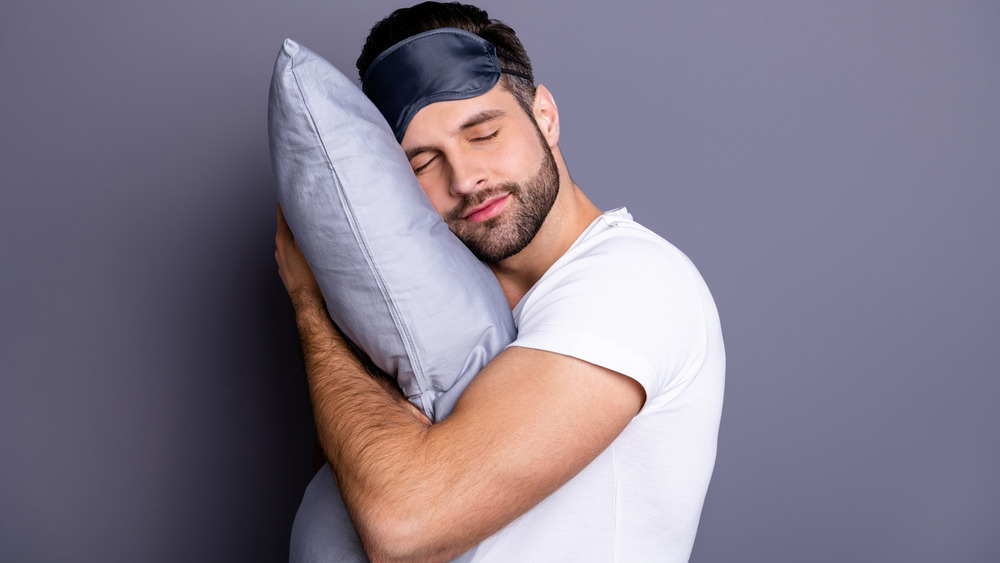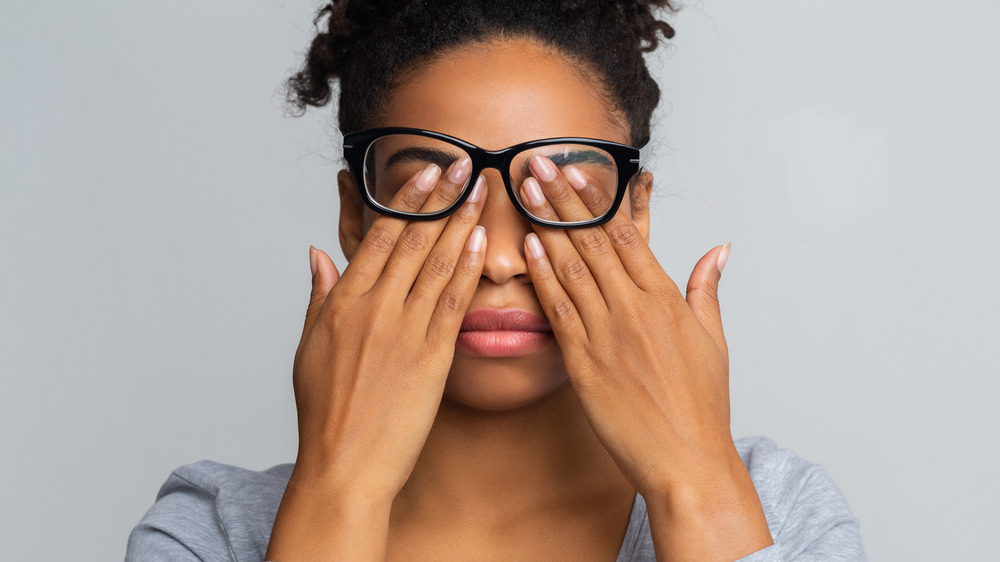How White Noise Machines Help You Get Better Sleep
One-third of all adults in the U.S. are not getting the recommended eight hours of sleep each night (via CDC). People who live in cities or along busy roads may be able to sleep through sirens, thunderstorms, and even loud alarms. But for those of us who are light sleepers, scientists say that white noise machines may hold the answer to more quiet and restful nights.
Sleep deprivation or poor quality of sleep can lead to many serious health issues. Heart disease, diabetes, obesity, and depression are just some of the chronic conditions that are linked to bad sleep. Lack of sleep can lead to car accidents and risky behaviors in teens and adults who don't get enough quality shut-eye. In older adults, sleep is often harder to achieve because of pain, or even certain medications. Unfortunately, older people who don't get enough sleep are at higher risk of memory problems and falls (via NIH).
Do you need a white noise machine?
Waking suddenly because of a loud noise is our body's way of alerting us to the possibility of danger (via Discover Magazine). If our sleep is frequently interrupted, we may feel more tired in the morning. Studies have shown that the use of white noise can help people stay asleep even if loud, disruptive noises are present (via Sleep Medicine). Before you run out and buy a white noise machine, consider whether you actually need one or not.
White noise machines work by blending different frequencies of sound to create random sounds that may resemble a fan or moving air. By masking background noises, white noise keeps our brains from going on high alert, leading to a more restful night's sleep. In fact, a 2005 study found that ICU patients slept more soundly when exposed to white noise.
Some experts say that more studies need to be done to determine if white noise really is helpful for everyone (via TIME). Researchers even suggest that by using a white noise machine, you may become dependent and have trouble sleeping without one. Unless you are already having difficulty sleeping, you might be better off skipping the external aid.


